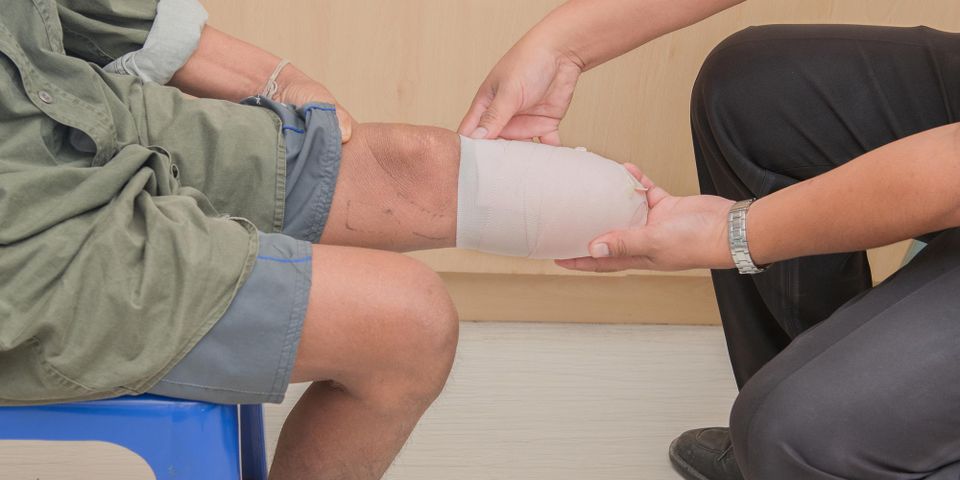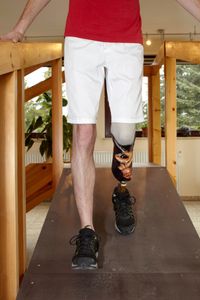3 Ways to Cope with Phantom Limb Pain

Phantom limb pain (PLP) is a common condition among amputees where they experience painful or strange sensations that seem to come from the limb that is no longer there. Even though the limb is gone or they have a new prosthetic, the pain is real. If you are experiencing these symptoms, read on to learn how you can manage them.
3 Tips for Coping With Phantom Pain
1. Try Local Injection Therapy
Phantom limb pain varies from person to person, but for most people, it will fade over the first six months post-operation. In the meantime, physicians can help you manage the sensations by prescribing pain medications or local injection therapy, which involves injecting a pain-blocking agent at the amputation site to block pain signals from being sent between your nerve endings and your brain.
2. Participate in Special Physical Therapy
 One trigger of phantom pain is the psychosomatic disconnect between your brain and your body. Your brain relies on visual cues to function, so when your vision doesn’t perceive a limb, your brain sends pain signals to the nerve endings.
One trigger of phantom pain is the psychosomatic disconnect between your brain and your body. Your brain relies on visual cues to function, so when your vision doesn’t perceive a limb, your brain sends pain signals to the nerve endings.
One way to combat this visual association trigger is mirror therapy, where a mirror is placed next to your non-amputated limb during physical therapy. You watch your limb during the therapy, and your brain is tricked into believing your amputated limb is still there. For many patients, this reduces or eliminates phantom pain altogether. Double amputees can use prosthetics or surrogates to remap their neural pathways.
3. Seek Community Support
If you are waiting on, or have just received, a prosthetic and are experiencing post-amputation sensations, don’t hesitate to seek help. The Amputee Coalition estimates nearly 80% of amputees experience phantom limb pain, so you aren’t alone. Engaging with a community that understands your needs, experiences, and feelings will help you manage your pain and adjust to the new lifestyle.
If you are looking to regain independence and comfort in your life, look no further than National Prosthetics & Orthotics, in Cold Spring, KY. Licensed by the Ohio State Board of Prosthetics and Orthotics, they offer customized devices and prosthetic fittings for children, adults, and veterans. Call (859) 442-0400 to speak with a member of their team or visit their website to learn more about their services.
About the Business
Have a question? Ask the experts!
Send your question

